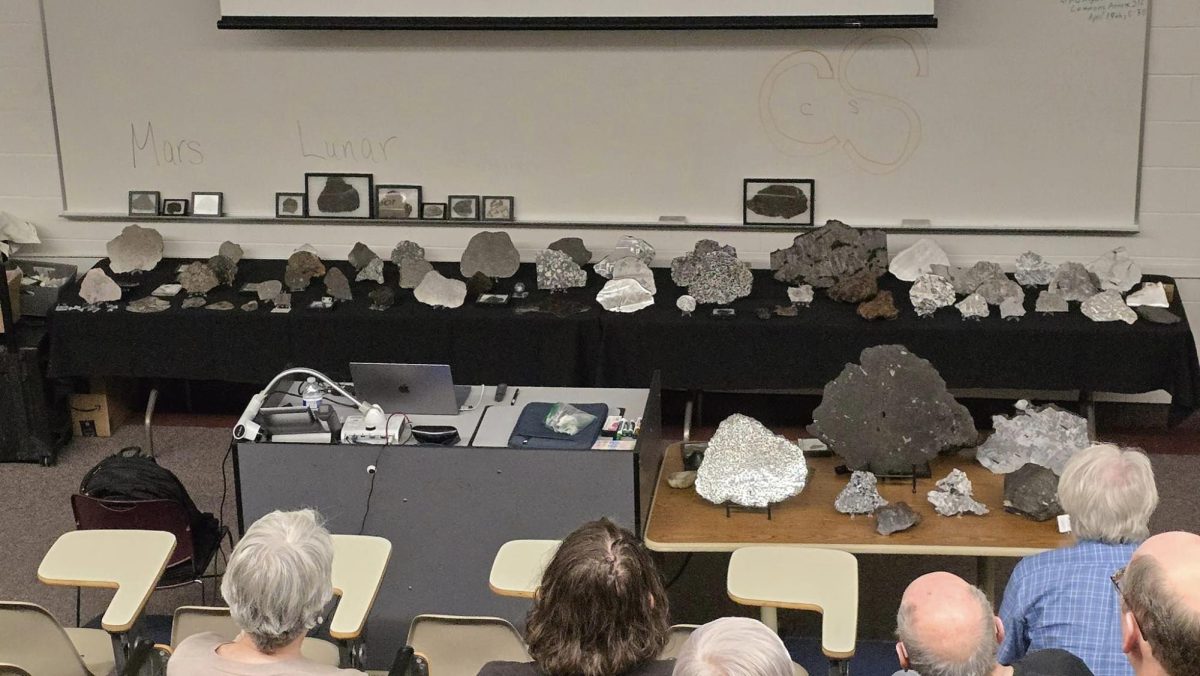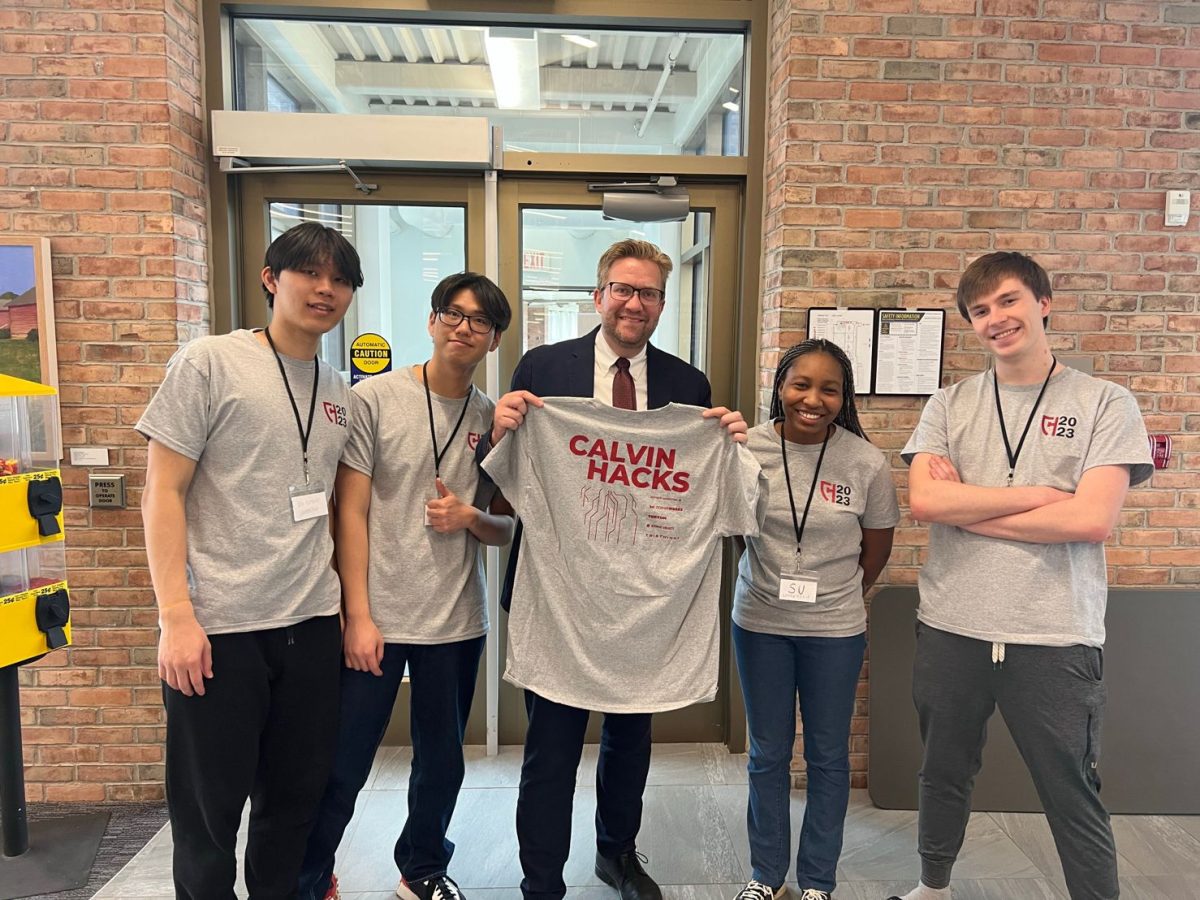Career paths after college can often lead to exciting places. Such was the case for Michael VanWoerkom –– a 1995 alumnus of Calvin, who graduated with a degree in mechanical engineering.
Today, VanWoerkom is the CEO of ExoTerra Resource LLC –– an aerospace company that he founded in 2011. According to VanWoerkom, ExoTerra works towards the goal of “reducing the cost of gravity” by utilizing resources already in space.
While the company has since pivoted from its original vision, ExoTerra has seen tremendous success since. ExoTerra has won both commercial and government contracts with their technologies currently being used in orbit.
Currently, most of ExoTerra’s projects involve satellite propulsion; the motto on their website reads “a driving force in satellites.”
VanWoerkom’s senior project at Calvin was a humble, solar-powered airplane which — due to an error in the math –– only produced half the required power to keep it aloft, but still effectively made it a “solar-powered glider” according to VanWoerkom.
One of the things that I learned at Calvin was that sometimes failure is okay, and you’ll learn from that and do better the next time.
Despite this, VanWoerkom saw potential within this initial failure.
“One of the things that I learned at Calvin was that sometimes failure is okay, and you’ll learn from that and do better the next time,” VanWoerkom told Chimes.
After graduating Calvin in 1995, VanWoerkom went on to attain a master’s degree in engineering and a degree in aerospace engineering at the University of Michigan.
Immediately out of school, VanWoerkom was employed by Lockheed Martin –––the aerospace and defense corporation behind, among other things, the NASA Mars Rovers (Spirit, Opportunity, Curiosity, & Perseverance), the Orion Crew Vehicle, OSIRIS-REx and a pantheon of iconic fighter-jets.
At Lockheed, VanWoerkom worked on various propulsion-related projects, eventually landing in the Orion program –– an integral piece of NASA’s Artemis program, which aims to bring humans back to the moon.
“I was the mechanical lead for the Orion crew module for a number of years,” VanWoerkom told Chimes. “So I was responsible for all structures and mechanisms on the Orion crew module.”
In addition to this, VanWoerkom was also on the team for the XSS-11 (also referred to as USA-165) –– a small, maneuverable satellite, which, according to Lockheed Martin, is a proof-of-concept for “autonomous rendezvous and proximity maneuvers.”
XSS-11 is suspected by some to be a kinetic kill vehicle –– a satellite designed to destroy other satellites in orbit by smashing into them. VanWoerkom denied this, but stated that “I’m not allowed to tell about what it was either.”
With 14 years of experience under his belt at Lockheed, VanWoerkom decided it was time to take a bold step into the unknown: starting his own business.
“In 2011, I decided that it was time to try and go do my own thing and started ExoTerra,” VanWoerkom told Chimes. “When we started the company, we were actually looking at in-situ resource utilization –– which is trying to use resources on the moon or on Mars to get where you want to go –– so that you don’t have to bring that propellant with you wherever you’re going.”
When it comes to launching satellites into orbit, every kilogram of weight matters. For spacecraft with onboard propulsion systems, propellants can take up a sizable fraction of their weight. ExoTerra initially sought to use the pre-existing resources already in space –– mainly ice deposits or regolith found on the moon –– to make fuel on-site as-needed.
“It’s like if you try and do a road trip and carry all of the gas with you at the beginning. It’s a very big car. Whereas if you can refuel along the way, it reduces how much you need to pack with you on your trip,” said VanWoekom.
ExoTerra’s business model faced a problem: there were no customers for such a technology. While a few commercial spacecraft have landed on the moon, most commercial space activity has remained in low-earth orbit –– far away from the moon.
This, according to VanWoerkom, encouraged ExoTerra to pivot on its original vision.
“There really weren’t any customers for that yet, and so the business wasn’t going to last long without customers. And so we kind of changed our focus more towards microsatellites,” VanWoerkom told Chimes.
Since then, ExoTerra has primarily focused on propulsion systems for small satellites –– some of which are currently in orbit.
This also came with its fair share of challenges. VanWoerkom recalled the first time ExoTerra tested a Hall-effect thruster –– an electric-powered, high-efficiency, low-weight propulsion system.
“When I got to ExoTerra, the first Hall thruster that we built melted,” VanWoerkom told Chimes. “In the first test, we actually ended up melting ceramics, which is particularly hard to do. But we knew that it doesn’t always work the first time, and you figure out what you did wrong and you fix it for the next go around –– some life lessons I learned from my senior design project,” VanWoerkom told Chimes.
I’d say that’s one of the advantages that I got out of Calvin –– just not being solely focused on just the engineering.
According to VanWoerkom, his Calvin education –– which included his senior design project –– played a role in his work beyond Calvin.
“The Calvin education is [a] more well-rounded education. It’s not strictly focused on just the engineering part of things,” VanWoerkom told Chimes. “When I was in [graduate] school, I could tell the difference a little bit between my background and other kids that have been just solely focused on engineering.” VanWoerkom cited public speaking ability, technical writing and communication skills as areas in which he felt more prepared than his peers. “I’d say that’s one of the advantages that I got out of Calvin –– just not being solely focused on just the engineering,” VanWoerkom said.






